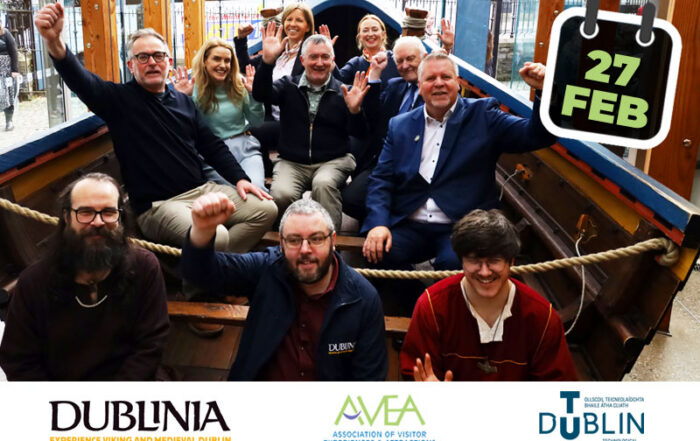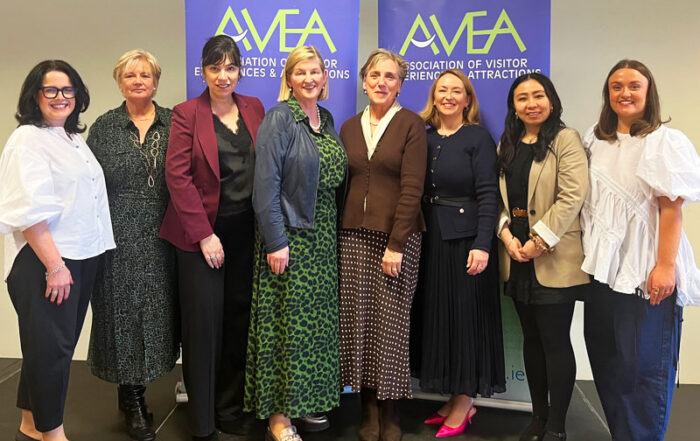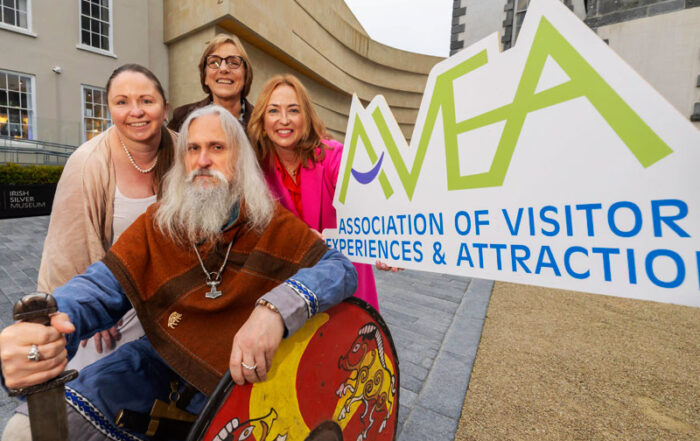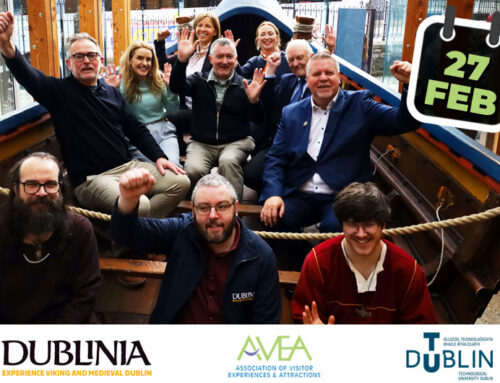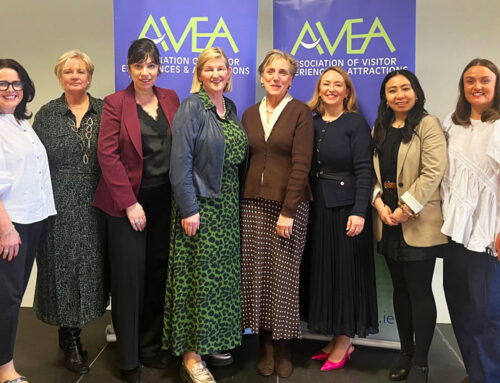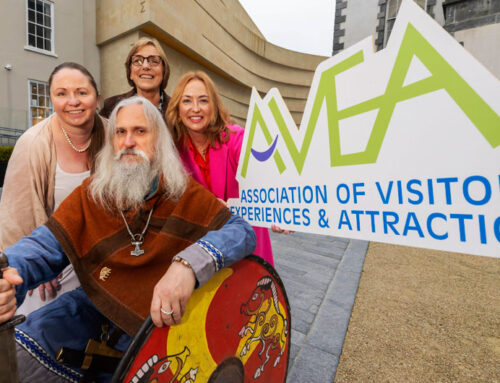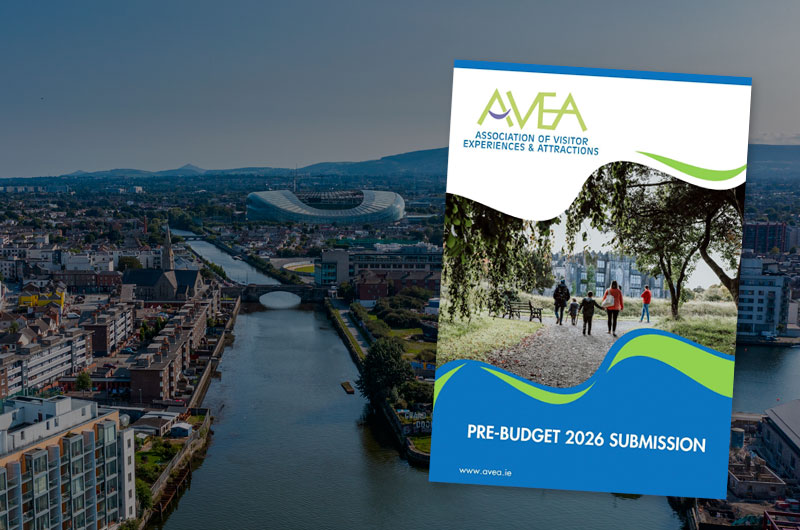
AVEA Budget Submission 2026
AVEA calls for targeted fiscal and policy interventions in #Budget2026 to ensure their sustainability, competitiveness, and future-proofed contribution to Ireland’s cultural and economic landscape.
Ireland’s visitor experiences and attractions are vital to the national tourism ecosystem. Our members include some of the most visited, most recognised, and most culturally and historically significant sites to visit on the island of Ireland. They provide a key motivation to visit Ireland, and to journey into regional and rural areas.
AVEA’s members — in the main SMEs, many located regionally — face mounting operational pressures that threaten their viability.
Some key metrics:
AVEA’s members employ almost 6,000 staff.
- In 2024, our members generated revenues of over €90m, much of which flowed into local economies in the purchase of goods and services.
- We welcome almost 20m visitors every year.
- Our median yield per ticket sold is just €11.00.
- Ticket sales (admissions) make up 46% of our revenue.
- Our staff costs represent 52% of operating expenditure.
- Insurance represents 3% of operating expenditure. Insurance premiums for our members increased by 12% 2024 v 2023, and by 12% 2023 v 2022.
1. Cost of Doing Business: A Critical Barrier
The rising cost of doing business is the most urgent challenge facing the sector. AVEA urges Government to:
Address Input Costs: Prioritise relief on energy, insurance, food, and other operational inputs.
Recognise SME Burden: Policy implementation, in particular around wage legislation, must consider the disproportionate impact on small and medium-sized enterprises.
Enable Competitive Pricing: Support mechanisms are needed to help attractions remain affordable and attractive to domestic and international visitors.
2. VAT Reduction to 9% for Attractions
Extend VAT Relief: AVEA advocates for the extension of the 9% VAT rate—already committed for food services in the Programme for Government —to include visitor attractions.
Minimal Fiscal Impact, Broad Benefit: The cost to the Exchequer is negligible, while the benefit to regional economies is substantial.
Evidence-Based Advocacy: Data from Fáilte Ireland and AVEA’s annual business survey indicates that a projected 24 million tickets in 2026 at the 9% VAT rate would cost just €15 million.
3. Investment in Education & Skills
Support Career Pathways: Advance the work of the Careers Oversight Group to address recruitment and retention challenges.
Build Sustainable Jobs: Invest in training for meaningful, rewarding roles in tourism and visitor experience sectors.
4. Strengthen Tourism Agencies & Market Access
Boost Budgets for Fáilte Ireland & Tourism Ireland: Ensure continued investment in overseas marketing and new market development and diversification.
Remove Infrastructure Barriers: The cap at Dublin Airport is a major constraint—regional and seasonal tourism targets depend on expanded capacity.
Support Innovation & Inclusion: Fund digital transformation, new product development, sustainable tourism, and accessibility initiatives.
5. Implement Dublin Taskforce Recommendations
Enhance First Impressions: Dublin is the gateway to Ireland—its visitor experience must reflect national tourism ambitions.
Cross-Agency Collaboration: AVEA calls for an action plan led by the Department of An Taoiseach, with DETE, tourism agencies, and stakeholders working in concert.
6. Tourism in Enterprise Policy
Full Integration in DETE Brief: Tourism must be embedded in enterprise and employment strategies.
Independent Voice & Consultation: Ensure industry representation in the new Tourism Policy steering group and reconvene the Tourism & Hospitality Forum.
Economic Inclusion: Tourism should be present in all business and economic forums to shape a growth-friendly environment.
7. Support for Rural & Regional Tourism SMEs
Empower Local Economies: Focus on enabling tourism SMEs in rural areas to thrive.
Action Plan for Rural Tourism: AVEA’s submission to the Joint Oireachtas Committee under the previous Government should inform future policy and investment.



